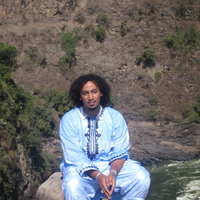Religious Conversion, Proselytization, and the Marginalisation of Indigenous Religions in Ghana
Journal of Religion in Africa, Jun 2, 2023
This paper probes the intricate connection of conversion, proselytization, and the state of Ghana... more This paper probes the intricate connection of conversion, proselytization, and the state of Ghana to achieve three overarching goals. First, it unravels how colonialism, Christianity, and Islam have historically and collectively marginalised African indigenous religions. Second, it demonstrates a clever state maneuver to continue the historic joint colonial and missionary projection of Christianity and Islam at the expense of other traditions. Third, it interrogates how the state of Ghana is mindful of the political implications of frustrating the principle of separation. Against these positions, the paper argues that despite tacit attempts to privilege Christianity and Islam over indigenous religion, the state of Ghana maintains a moderate secularist stance that enhances free and equal participation of its religiously diverse populations in the public space.











Uploads
Papers by Abamfo Atiemo
The editors and authors :
E. CHITANDO (Zimbabwe), M. R. GUNDA (Zimbabwe/ Germany), L. TOGARASEI (Botswana), J. KÜGLER (Germany), A. O. ATIEMO (Ghana), S. AWUAH-NYAMEKYE (Ghana), S. K. BERMAN (Botswana), T. A. CHIMUKA (Lesotho), C. J. CHITA (Zambia), M. W. DUBE (Botswana), J. GATHOGO (Kenya), I. S. GUSHA (Zimbabwe), M. HARON (Botswana/ South Africa), S. F. JOHN (South Africa), C. J. KAUNDA (Zambia), M. M. KAUNDA (South Africa), S. M. KILONZO (Kenya), U. M. KIRIAGHE (Uganda), F. MACHINGURA (Zimbabwe), L. P. MASEKO (South Africa), L. MASENO (Kenya), P. MUNHENZVA (Zimbabwe), E. P. MOTSWAPONG (Botswana), N. MWALE (Zambia), C. MWANDAYI (Zimbabwe), H. J. NDZOVU (Kenya), B. NYAHUMA (Zimbabwe/ Germany), S. NYAWO (Swaziland), A. D. OMONA (Uganda), L. C. SIWILA (South Africa), B. TARINGA (Zimbabwe), N. T. TARINGA (Zimbabwe).